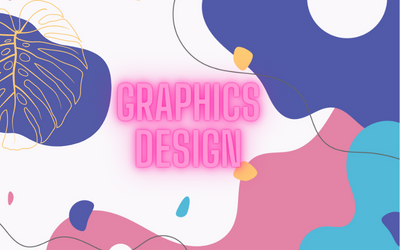| Outcomes |
- Design Proficiency: Trainees will develop a solid understanding of design principles, color theory, typography, and layout composition. They will gain the skills necessary to create visually appealing and well-balanced designs.
- Software Proficiency: Trainees will become proficient in using industry-standard graphic design software, such as Adobe Photoshop, Illustrator, and InDesign. They will be able to navigate these tools confidently to bring their creative ideas to life.
- Digital Illustration and Logo Design: Trainees will master the art of creating digital illustrations and designing logos, allowing them to create unique and memorable visual identities for brands and businesses.
- Print and Marketing Materials: Trainees will learn to design various print media materials, including posters, flyers, brochures, and marketing collateral, effectively communicating messages to target audiences.
- Branding and Visual Identity: Trainees will understand the importance of branding and visual identity and be capable of developing consistent and impactful brand designs that resonate with consumers.
- Web and Mobile Design: Trainees will gain insight into user experience (UX) and user interface (UI) design for websites and mobile applications, creating user-friendly and engaging digital experiences.
- Photo Editing and Manipulation: Trainees will acquire skills in photo editing and manipulation, allowing them to enhance images and create stunning visual effects.
- Advanced Design Techniques: Trainees will explore various design styles and techniques, enabling them to approach design challenges with creativity and innovation.
- Portfolio Development: Trainees will build an impressive design portfolio throughout the course, showcasing their best work and demonstrating their skills and capabilities to potential employers or clients.
- Career Opportunities: With their newfound design expertise and portfolio, trainees will be equipped to pursue various career opportunities in the graphic design industry. They can apply for positions such as Graphic Designer, Visual Communication Specialist, Web/UI/UX Designer, Brand Identity Designer, and more. Alternatively, they can choose to work as freelance designers and take on projects independently.
|
|
|
| Requirements |
- Basic Computer Skills: Trainees should have a working knowledge of computer operations, including file management, using applications, and navigating the internet.
- Creativity and Artistic Aptitude: A passion for design and creativity is essential. Trainees should possess a strong sense of aesthetics and an ability to think creatively to conceptualize visually appealing designs.
- Communication Skills: Good communication skills are crucial in graphic design, as trainees will need to effectively convey ideas and understand client requirements.
- Software Familiarity: While prior experience is not mandatory, some familiarity with design software, such as Adobe Photoshop, Illustrator, or InDesign, will be advantageous.
- Device and Internet Access: Trainees should have access to a computer or laptop with internet connectivity to participate in online learning sessions and access course materials.
- Commitment and Time Availability: The course demands dedication and time commitment. Trainees should be prepared to invest time in attending classes, completing assignments, and engaging in practical projects.
- Openness to Feedback: Design is an iterative process, and trainees should be receptive to constructive feedback to improve their skills and designs.
- Age Requirements: The course is open to participants of various age groups; however, some courses may have specific age restrictions. Please check the course details for any age-related requirements.
- Educational Background: There are no specific educational prerequisites for enrolling in the course. Both students and professionals from diverse backgrounds are welcome.
- Portfolio (Optional): While not mandatory, having a portfolio showcasing any previous design work or creative projects can be advantageous during the application process.
|
|
|


 1
1 